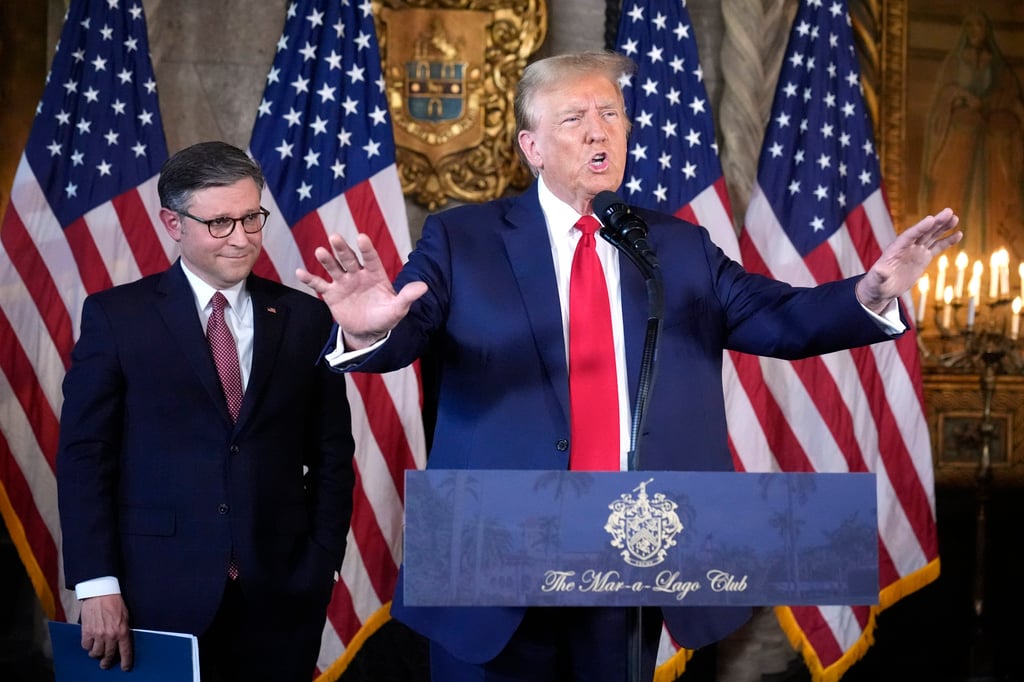Tough-on-China bills eyed for passage before 2024 election: US House Speaker Mike Johnson
- Legislation could further restrict outbound investments in the country and close a trade loophole for small parcels coming from the mainland

US House Speaker Mike Johnson on Monday pledged to push through more China-targeted legislation before House members stand for re-election in November.
America’s top-ranking Republican said the measures could further restrict outbound investments in China, close a trade loophole for small parcels from the mainland and yield a biosecurity act prohibiting federal contracting with the country’s biotech firms.
“China poses the greatest threat to global peace. Congress must keep our focus on countering China with every tool at our disposal,” said Johnson, a Louisiana Republican, in remarks at the Hudson Institute, a Washington-based think tank.

The goal was to have the package of China-related legislation signed into law by the end of this year, he said.